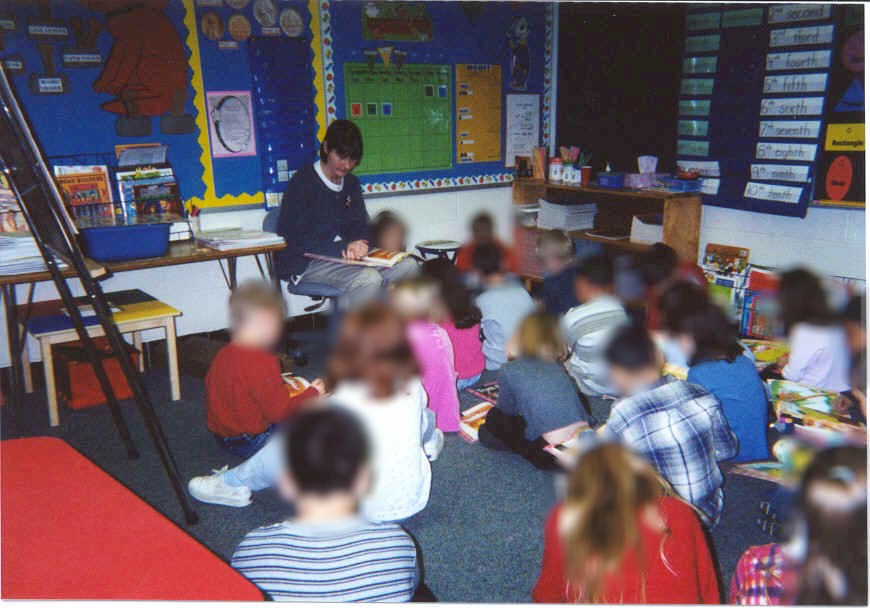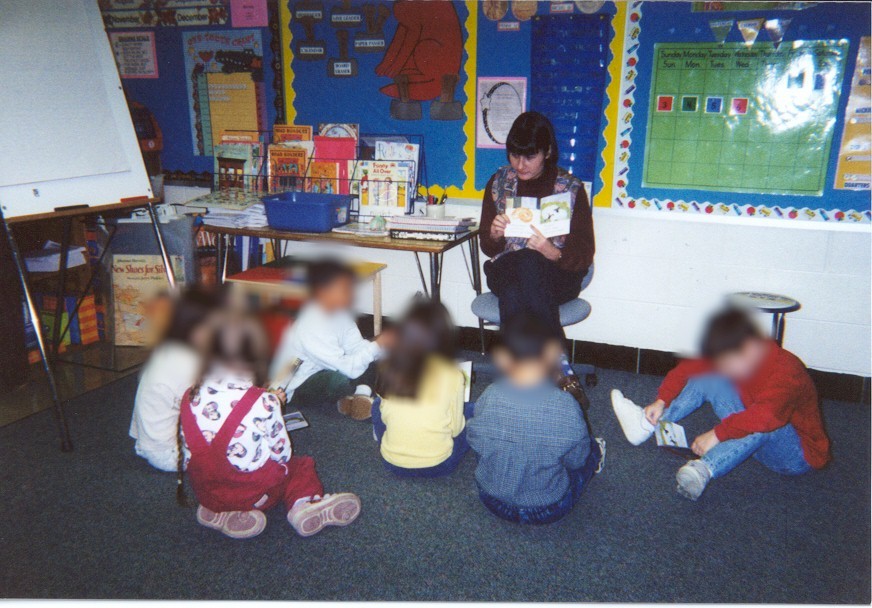Philosophy of Teaching Language Arts
![]()
Teaching is instructing, advising, counseling, organizing, assessing, guiding, goading, showing, managing, coaching, disciplining, prodding, preaching, persuading, proselytizing, listening, interacting, nursing, and inspiring.
--William Ayers
Learning is not always an easy task. Some learning may come easy, but often it requires much studying, hard work, and persistence. However, it can be the most rewarding task a person undertakes. It is a lifelong process, not one that is just present in the classroom. As students, children have an unlimited potential to learn new things. I believe that one of the most important goals for a child is to become literate, that is to be able to read, write, listen, and speak efficiently.
First, listening and speaking must be fostered. As a child builds his/her listening and speaking foundations, he/she is paving the way to becoming a successful reader. For young children, the classroom and home should be full of listening and speaking experiences, such as songs, stories, and conversations. These activities help the child to prepare himself/herself to read.
Learning to read is not an easy task, either. To a non-reader, words on a page make no sense whatsoever. They are simply jumbled lines on a paper. Teaching a child to read is a process that takes time; it is not a process that happens overnight. To do this, a teacher must strike a balance between whole language and phonics. I feel that going too far towards one method of instruction or the other may make it hard for a child to learn to read because both approaches provide their own tools to help a child read. Also, the classroom should be full of print, language experience stories, books, and encouraging activities. All of this will make those lines on the page become letters and then words.
Hand in hand with reading comes writing. As a child learns to read, he/she develops writing skills. As the lines on the page become letters and words to a child, he/she learns to write them. From a very young age, children understand that there should be writing on certain things. As they grow older and learn to read, they want to communicate through writing. With invented spelling, children are given the freedom at a very young age to express themselves. As children are given the opportunity through writer’s workshop and classroom work to write, their writing skills and spelling will become better and invented spelling will disappear.
Education is the most powerful gift we can give our children. As they make their way through school, we can teach them to enjoy learning and to be active learners in school and in life. Equipped with these skills, students will tackle life’s problems vigorously and successfully. They will realize that learning is not an easy process, but this will not deter them from anything.
During my student teaching, I used whole group reading, as well as guided reading, to gage the reading levels of my students and to teach to those levels. During whole group reading, the class used a basal reader, and we focused on one story for an entire week. We used a variety of methods to read the story, including individual reading, partner reading, and chorus reading.
Guided reading should be an integral part of any reading curriculum. In this photograph, I am working with a small group on a book that is on their level. During guided reading, I usually have the children read the book silently, then we discuss what they have read. There are many mini-lessons that can be taught at this time, such as punctuation, capitalization, and usage. Also, comprehension issues can be addressed.

